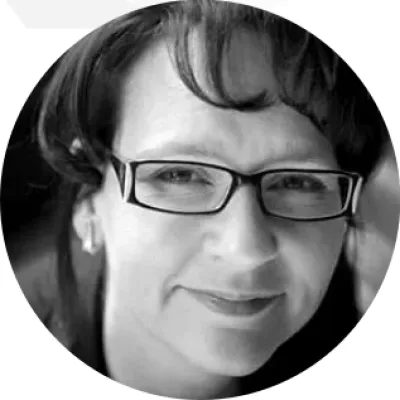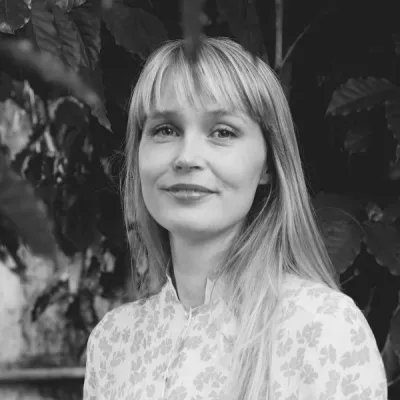Researchers and PhD students from across Europe gathered in Oxford for two days of advanced training in social science genetics, combining hands-on labs, expert lectures from science and industry, and critical discussions on the latest methodological developments and ethical discussions.
Bringing researchers across Europe together
On 4–5 September 2024, the Leverhulme Centre for Demographic Science at the University of Oxford hosted the European Social Science Genetics Network (ESSGN) for a PhD training workshop at Worcester College and Nuffield College, University of Oxford. The event provided doctoral researchers with in-depth training at the intersection of social science and statistical genetics.
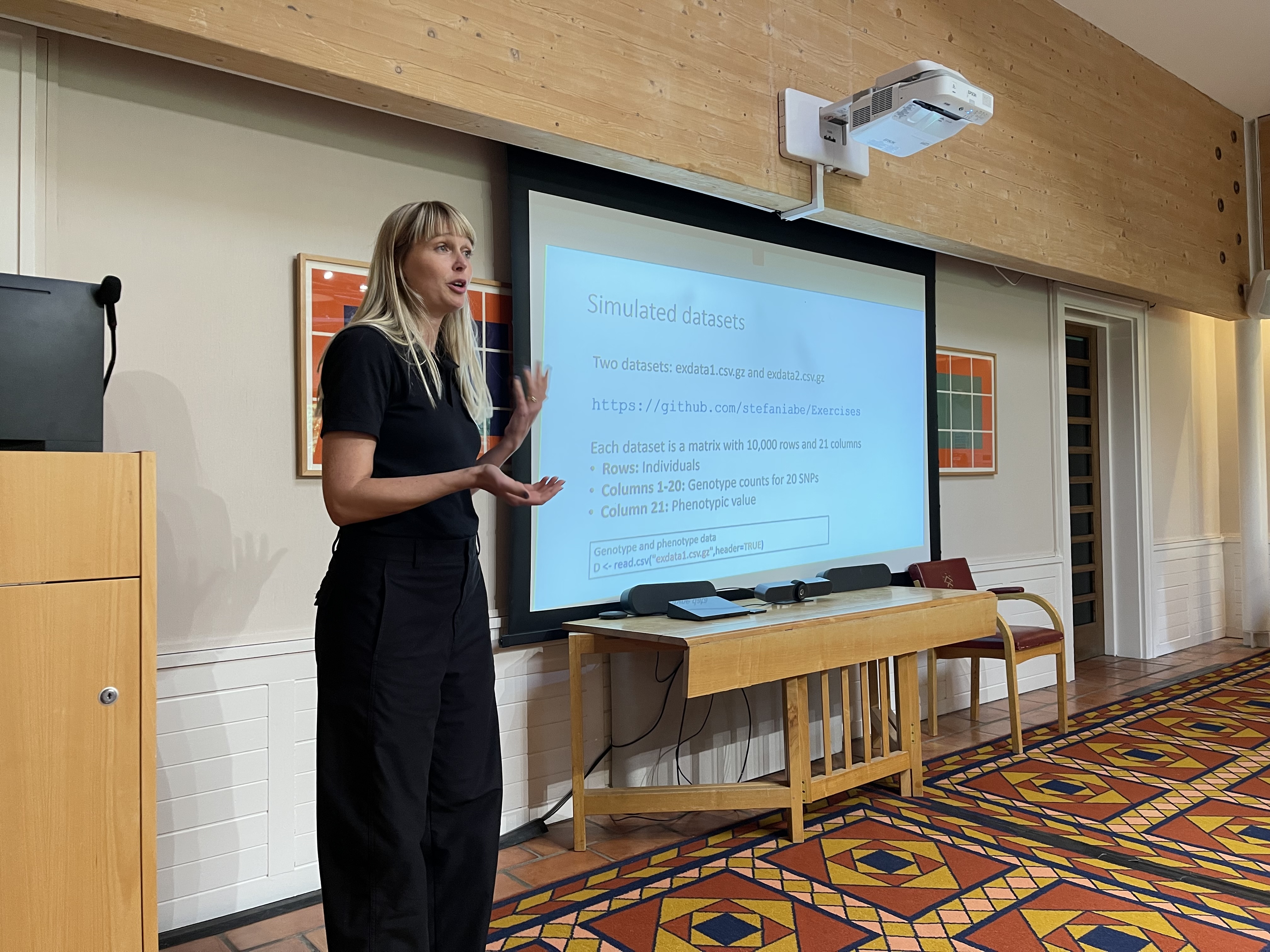
The programme offered a mix of lectures, practical exercises, and opportunities for exchange. A highlight was the practical GWAS lab led by LCDS’s Stefania Benonisdottir (pictured right) and Augustine Kong, where participants worked to improve their understanding of the common pitfalls in working with genetic data.
Topics ranged from admixture in GWAS and family-based designs to best practices for polygenic indices, multi-omic data integration, and statistical tools beyond academia. Students were exposed to a variety of speakers from industry and academia including:
Daniel G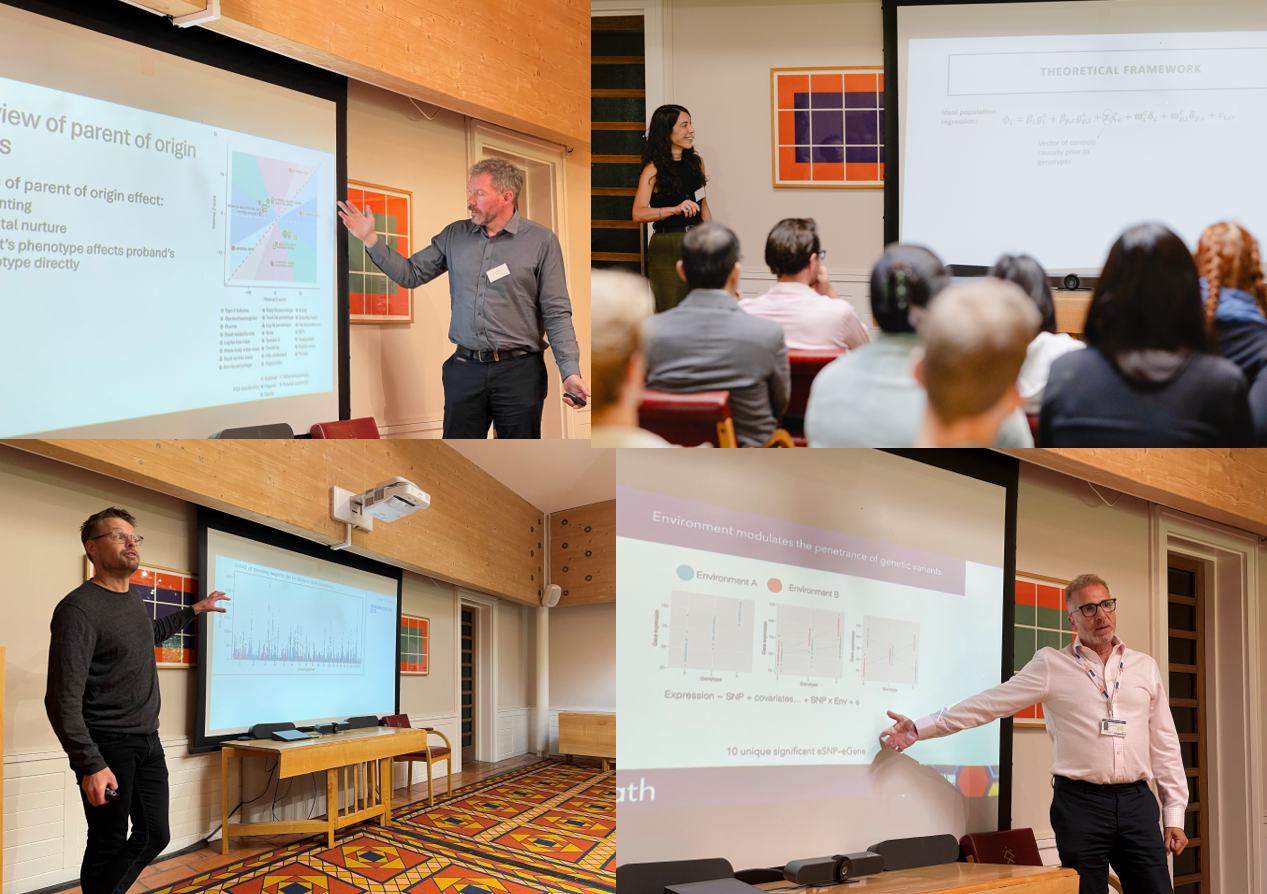 udbjartsson (deCODE Genetics, pictured upper left) on Using familial structures in human genetics studies
udbjartsson (deCODE Genetics, pictured upper left) on Using familial structures in human genetics studies
Jack Eusden (Genomics), Moving from relative to absolute genetic risk when evaluating polygenic risk scores in population and clinical cohorts
Asyu Okbay (Amsterdam AMC, pictured upper right), An updated polygenic index repository: Expanded phenotypes, new cohorts, and improved causal inference
Simon Myers (Statistics, University of Oxford, pictured bottom left), Why does genomic trait prediction translate poorly across human ancestries?
Philip Awadalla (NDPH, University of Oxford, pictured bottom right), Blood-based windows on disease: Health signatures across different environments and ancestries
Megan Conroy (UK Biobank), UK Biobank: A unique resource for health research
Ethics and communication in social science genetics
The workshop also featu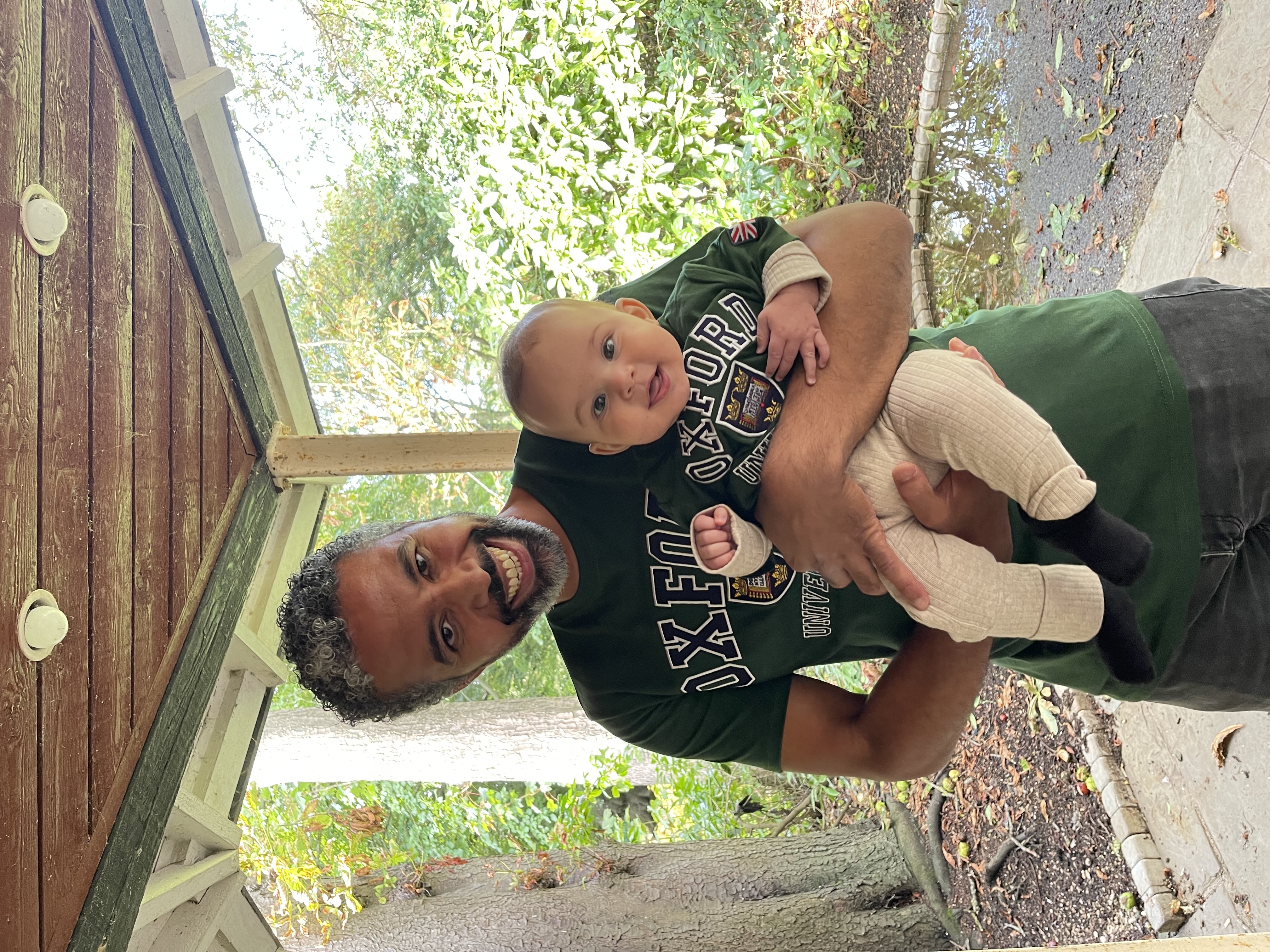 red a stimulating panel and collective discussion on ethics and communication in behavioural phenotypes, with Charlotte Payne, Senior Editor at Nature Human Behaviour, and Abdel Abdellaoui (Amsterdam UMC, pictured right with his newest addition to the family and youngest participant), facilitated by Melinda Mills. The discussion emphasised the importance of responsible communication in genetics research and the role of interdisciplinary dialogue in shaping the field. For further reflection, read Abdel’s blogpost and ‘love letter’ to social science genetics, inspired by the workshop.
red a stimulating panel and collective discussion on ethics and communication in behavioural phenotypes, with Charlotte Payne, Senior Editor at Nature Human Behaviour, and Abdel Abdellaoui (Amsterdam UMC, pictured right with his newest addition to the family and youngest participant), facilitated by Melinda Mills. The discussion emphasised the importance of responsible communication in genetics research and the role of interdisciplinary dialogue in shaping the field. For further reflection, read Abdel’s blogpost and ‘love letter’ to social science genetics, inspired by the workshop.
In addition to the academic programme, participants connected over shared meals, receptions, and a walking tour of Oxford’s historic setting. The workshop was organised by ESSGN Co-PI Melinda Mills, ESSGN DPhil student Vincent Straub and LCDS’s Louise Allcock.
About ESSGN
The European Social Science Genetics Network (ESSGN) brings together eight academic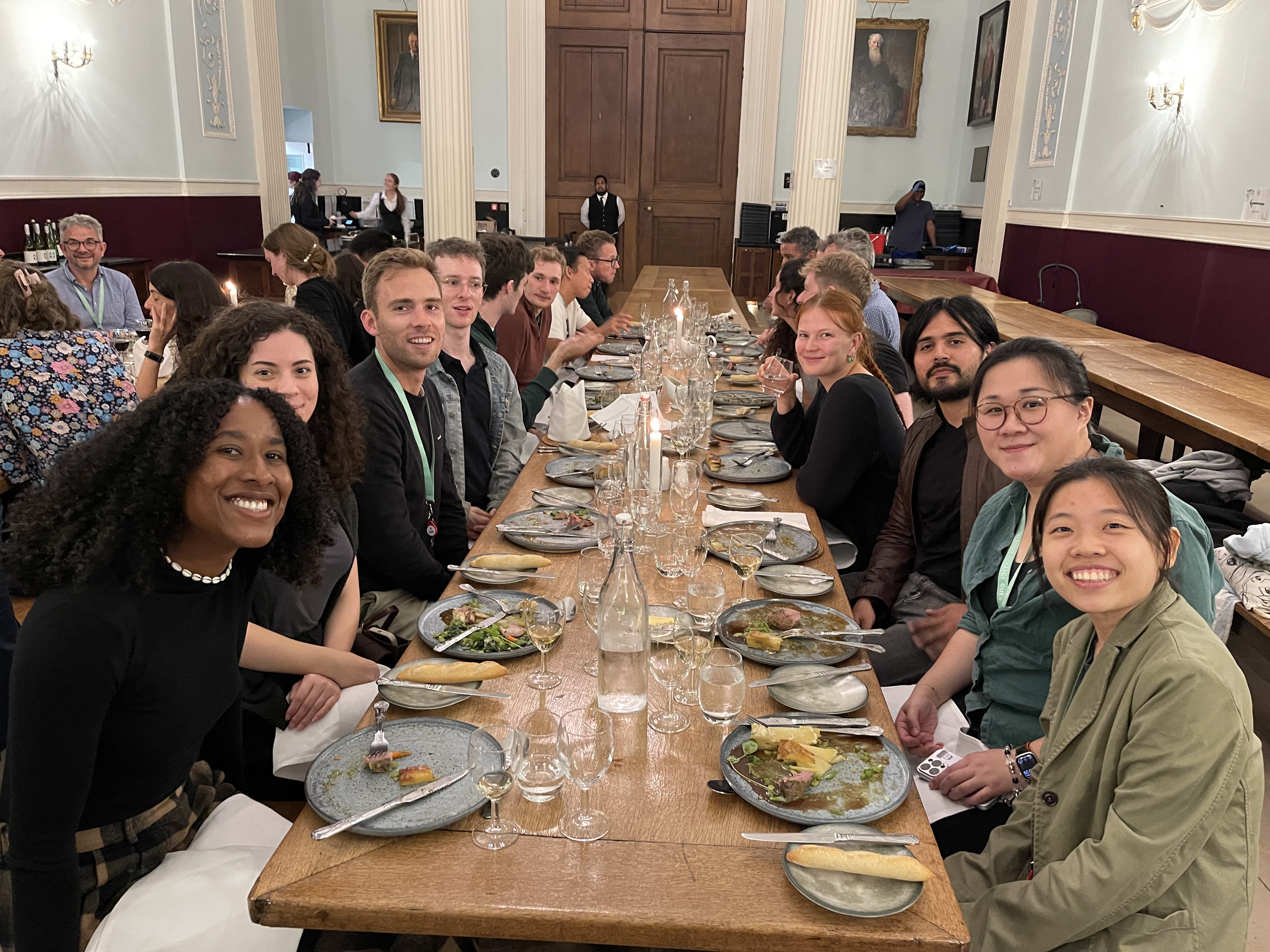 institutions and several non-academic partners with a shared interest in social science genetics. The network focuses on incorporating genetic information to address long-standing social science questions, such as the origins of inequality, the interplay between nature and nurture, and how environments and genes together shape lives.
institutions and several non-academic partners with a shared interest in social science genetics. The network focuses on incorporating genetic information to address long-standing social science questions, such as the origins of inequality, the interplay between nature and nurture, and how environments and genes together shape lives.
ESSGN aims to train the next generation of social scientists in the responsible and technically sound use of genetic data, and to promote objective communication about what genetic research can—and cannot—tell us in the social sciences.
ESSGN has received funding from the European Union’s HORIZON-MSCA-2021-DN-01 programme under grant agreement number 101073237. LCDS is funded by a Large Centre Grant from the Leverhulme Trust.



